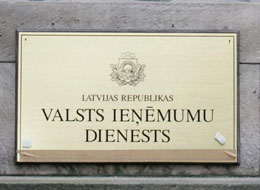Financial Services
International Internet Magazine. Baltic States news & analytics
Monday, 16.02.2026, 02:18
Drastic cuts of staff number and salaries at Latvia’s State Revenue Service
 Print version
Print version |
|---|
Due to the austerity budget, SRS has been forced to change its structure and close down half of its 34 departments, writes LETA.
As Jakans explains, SRS is forced to operate only four days per week due to reduced funding.
"Approximately 90 percent of SRS employees receive only up to LVL 500 gross salary per month," SRS head informs.
According to Jakans, SRS has worked on becoming more forthcoming towards tax payers and extending deadlines for paying taxes. SRS is currently also working on simplifying and making automatic value-added tax (VAT) payments.
Jakans describes the overall economic situation in Latvia as chaotic. However, he is hopeful that the situation will get back to normal already next year. Jakans comments that although the number of taxpayers has reduced, now tax revenues have stabilized and are not expected to shrink anymore.
Jakans expects growing discontent among the residents around the very end of 2009 and also a surging level of unemployment, resulting from "cuts and layoffs in state administration," however, after that the situation is likely to start to improve, Jakans believes.
The higher VAT rate has made retail sales fall and, as a result, VAT revenues this year have actually been LVL 215 million lower than last year, which is the opposite of what was planned.
Jakans comments that previous experience of Latvia, the same as that of other countries, shows that higher taxes and lower social guarantees encourage tax evasion. "If we add to this problem also reduced salaries and staff number at SRS, the overall picture looks rather gloomy."
Jakans believes that the situation would improve if the VAT would be brought back to 18 percent, imposing it equally to all sectors, without applying reduced tax rates to some. "I think such measures would bring more positive effects than raising the VAT," Jakans says.








 «The Baltic Course» Is Sold and Stays in Business!
«The Baltic Course» Is Sold and Stays in Business!

